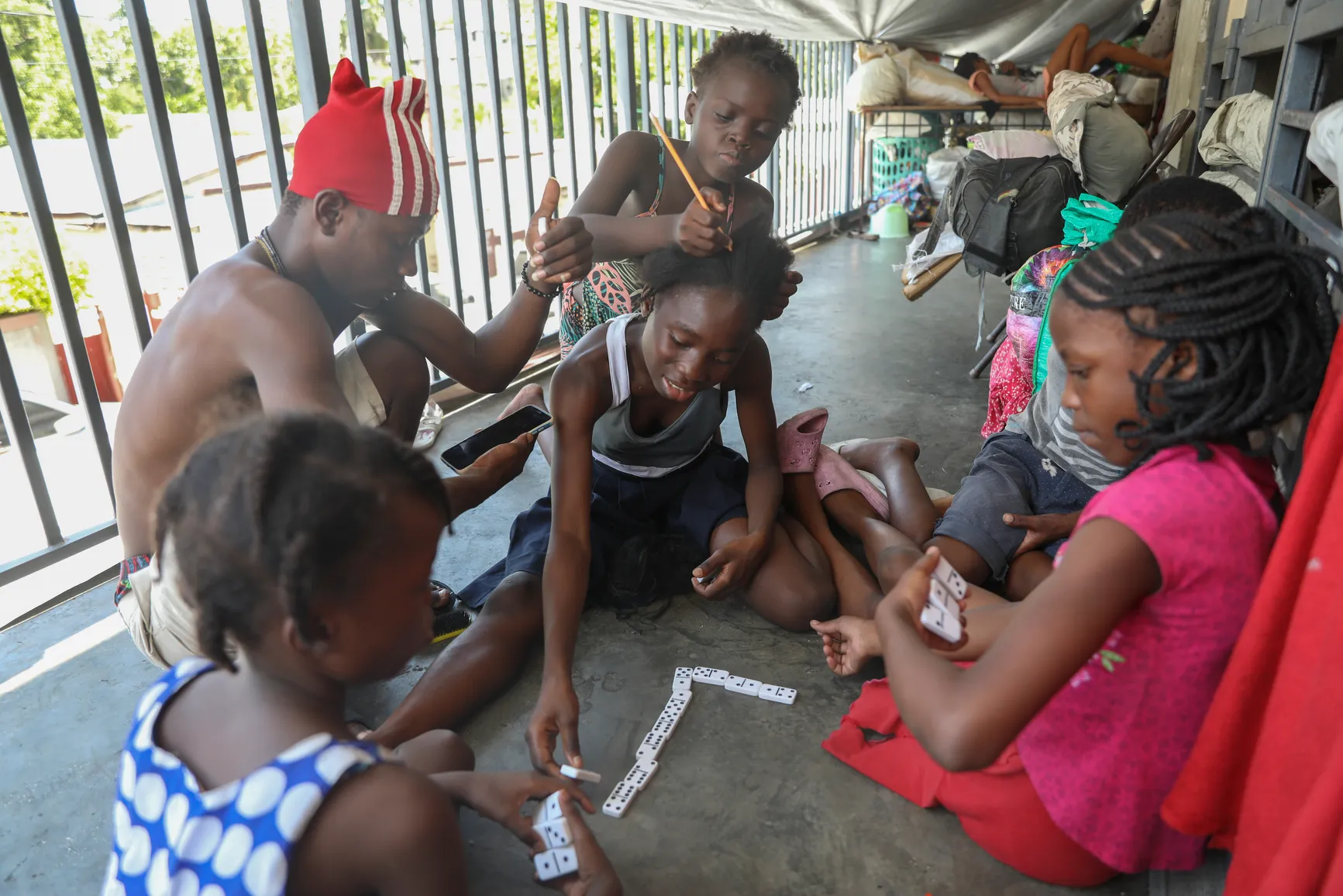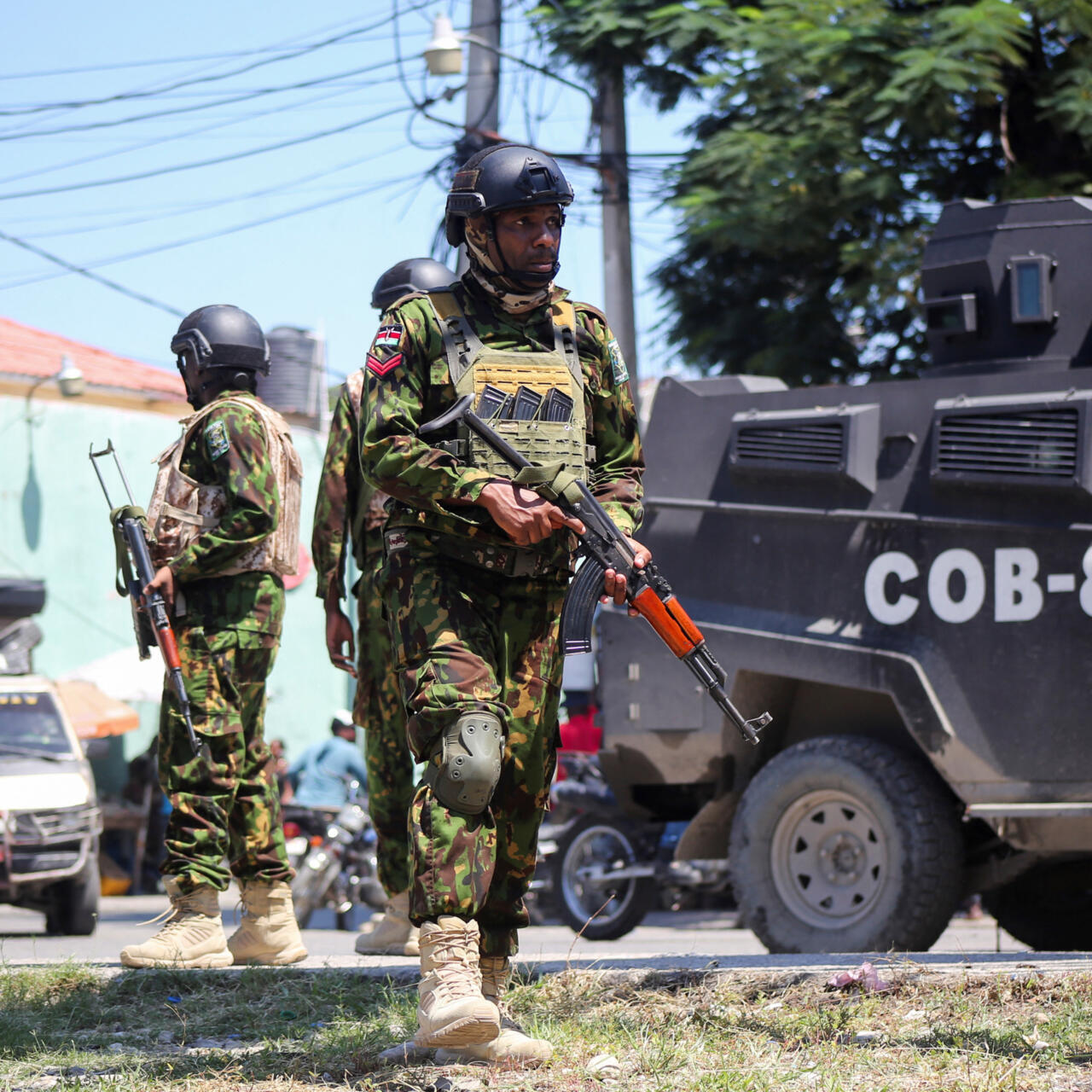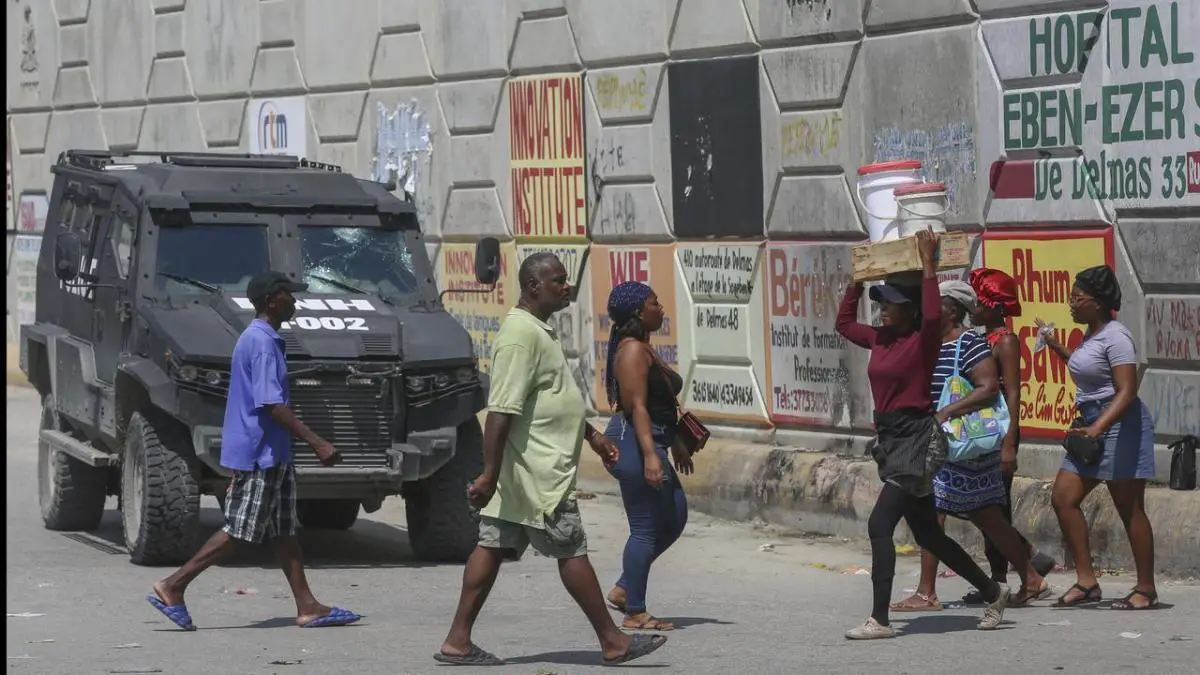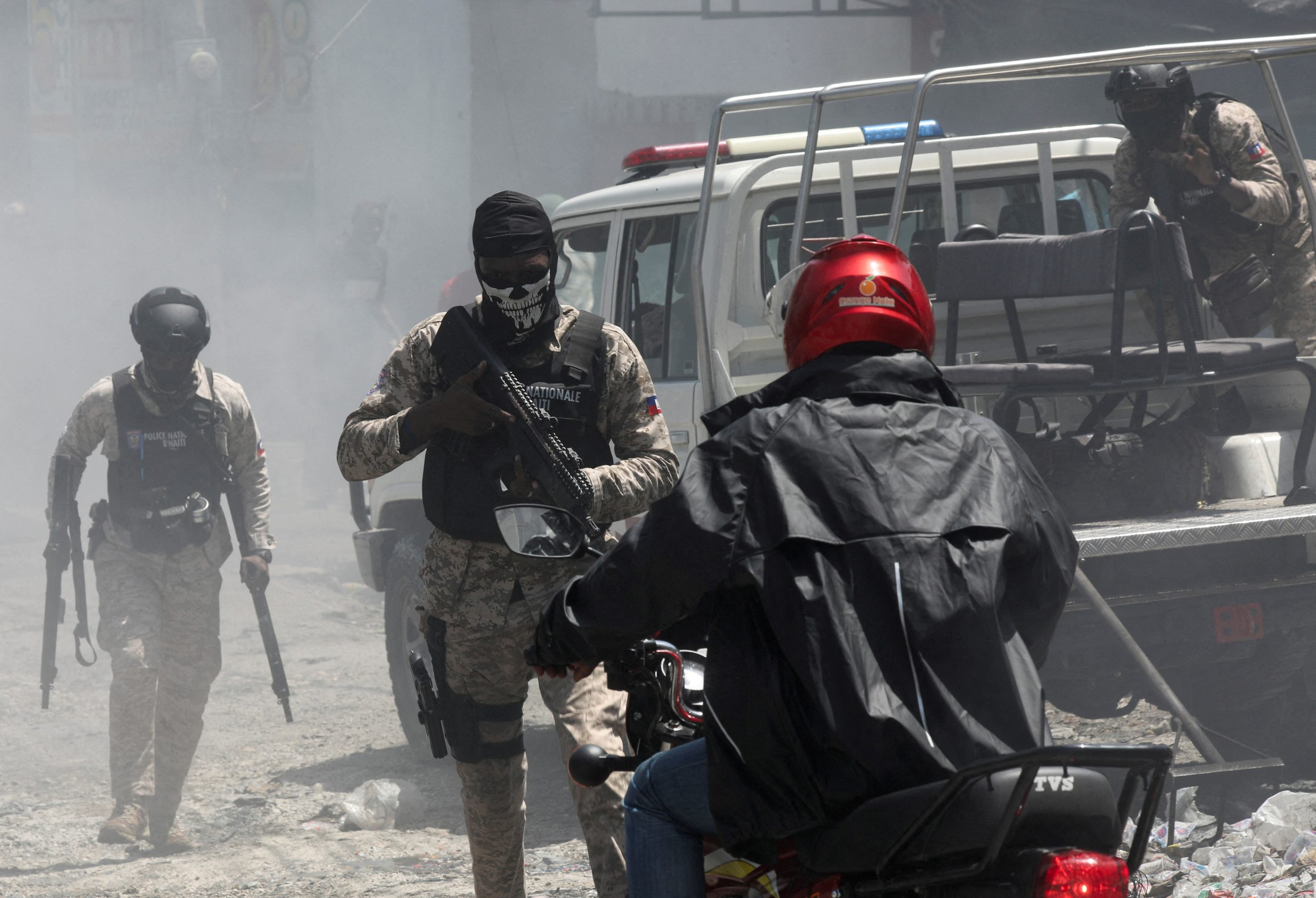On a seemingly ordinary day in the Artibonite department of Haiti, a wave of violence erupted, leaving devastation in its wake. On Thursday, an unimaginable horror unfolded in the small town of Pont Sondé, as the Gran Grif gang launched a brutal attack that claimed at least 70 lives, including infants, women, and the elderly. The United Nations Human Rights Office confirmed that automatic rifles were used to indiscriminately slaughter the victims, further escalating an already dire security crisis in the country.
As horrifying as these figures are, they only scratch the surface of a much deeper problem: the unchecked rise of gang violence in Haiti, a country that has, for too long, been left to fend for itself in the face of profound insecurity. As foreign governments remain largely passive, particularly Canada—a nation with historical ties to Haiti—the region continues to descend into chaos, while innocent Haitians suffer the deadly consequences of global inaction.
Haiti’s Descent into Gang-Driven Chaos
Haiti’s gang problem is not a recent phenomenon, but the magnitude of violence has reached unprecedented levels in the last few years. Gangs have proliferated throughout the nation, taking control of major urban areas, key agricultural regions, and vital transportation routes. These criminal organizations—driven by the drug trade, human trafficking, and extortion—have not only eroded the social fabric of Haitian society but have also created a de facto state of terror.
The massacre in Pont Sondé is a stark reminder of the ruthlessness that has become the new normal in Haiti. The Gran Grif gang, one of the most powerful groups in the Artibonite department, has been a dominant force, inflicting unimaginable atrocities on defenseless populations. The UN reports that 3,661 people have been killed since January 2024 due to gang-related violence, a figure that illustrates the grave human cost of this ongoing conflict.
But gang violence does not exist in a vacuum. It is exacerbated by a failing state, a severely weakened national police force, and international indifference. Years of political instability, endemic corruption, and the assassination of President Jovenel Moïse in 2021 have further fueled the collapse of governance. With the Haitian National Police vastly outnumbered and under-resourced, the state has lost its ability to enforce law and order, allowing gangs to fill the power vacuum.
However, what makes this crisis particularly heart-wrenching is the seeming lack of international willpower to intervene meaningfully. Foreign governments, particularly those like Canada, who once played a more active role in Haitian affairs, have watched from the sidelines as Haiti spirals deeper into despair.

Canada’s Fading Role: A Disappointing Departure from Responsibility
Canada, a nation with strong historical and diplomatic ties to Haiti, has long been regarded as one of the country’s key international partners. Yet, in the face of Haiti’s greatest security threat in recent memory, Canada’s response has been conspicuously inadequate. Ottawa’s hands-off approach stands in stark contrast to the decades of Canadian-led peacekeeping, development aid, and diplomatic efforts that were once lauded for stabilizing the Caribbean nation.
Prime Minister Justin Trudeau’s government, in particular, has faced increasing criticism for its apparent reluctance to engage meaningfully with the crisis. Following the June deployment of foreign security forces as part of the Multinational Security Support (MSS) mission, Canada’s involvement was minimal, offering logistical and financial support but stopping short of direct intervention.
Trudeau’s administration has instead focused on domestic issues and larger international affairs, leaving Haiti at the periphery of its foreign policy priorities. Critics argue that this reflects a disturbing shift in Canada’s approach to global humanitarian crises—a shift that prioritizes self-interest over responsibility.
While Canada has certainly contributed funding and vocalized support for humanitarian efforts, its actions have not kept pace with the scale of the crisis. In particular, the Canadian government has faced pressure to take a more active role in supporting Haiti’s beleaguered National Police Force or leading a peacekeeping mission similar to those deployed in the past. Yet, Ottawa remains hesitant, citing concerns over the complexity of the conflict and the potential for mission creep.
However, this cautious stance ignores the growing urgency of the situation. The violence in Haiti is not simply a Haitian problem—it is a regional problem. As gangs consolidate power, they threaten to destabilize the broader Caribbean region, potentially triggering a new wave of migration, economic disruptions, and increased transnational crime.
The Regional Impact of Gang Violence in Haiti
The ramifications of Haiti’s gang violence are far-reaching. Already, over 6,000 people have been displaced by the violence in Pont Sondé alone, with thousands more fleeing gang-controlled areas across the country. The International Organization for Migration (IOM) warns that this wave of displacement could soon spread to neighboring countries, as the lack of safety forces more Haitians to seek refuge abroad.
For the Caribbean and Latin American regions, this instability has wide-reaching implications. The displacement crisis could overwhelm already fragile migration systems, particularly in the Dominican Republic, which shares a porous border with Haiti. The Dominican Republic has long been a destination for Haitians seeking work and safety, but recent developments have led to rising tensions between the two nations, with the Dominican government increasingly tightening its border controls in response to the security threats spilling over from Haiti.
Beyond migration, the escalation of gang violence also threatens to transform Haiti into a hub for organized crime in the Caribbean. The rise of transnational gangs, who use Haiti as a base for drug trafficking and arms smuggling, has the potential to destabilize nearby nations, including Jamaica, the Bahamas, and even southern Florida in the United States. As gangs continue to operate with impunity, the spread of violence and crime could lead to a regional security crisis, with devastating consequences for the broader Western Hemisphere.
Despite these clear risks, Canada has been slow to recognize the urgent need for action. The potential for a spillover effect into other Caribbean nations makes it imperative for Canada and its international partners to treat Haiti’s crisis not as an isolated event, but as a ticking time bomb with regional—and global—implications.
A Call for Canadian Leadership
If there was ever a moment for Canada to step up and take responsibility for its role in global security, it is now. Haiti’s cries for help cannot continue to fall on deaf ears. The international community, and Canada in particular, must confront the growing gang crisis head-on before it escalates further.
First and foremost, Canada must strengthen its support for the Multinational Security Support (MSS) mission. Providing financial aid is no longer enough. Canada should be leading efforts to bolster the Haitian National Police with training, resources, and tactical support, ensuring that the police force can regain control of the territories lost to gangs.
Canada should use its diplomatic clout to pressure international partners into taking coordinated action. The UN has already called for additional financial and logistical aid to be provided to Haiti, but this is only a stop-gap solution. What Haiti truly needs is sustained, long-term international engagement focused on rebuilding its institutions, combating corruption, and creating a pathway to stability. Canada, with its historical ties to Haiti, is well-positioned to spearhead this effort—yet it remains unwilling to do so.
Canada must also address the root causes of the violence. Economic deprivation, unemployment, and lack of social services have fueled the rise of gangs, providing them with an endless supply of recruits. Without addressing these structural issues, no amount of military or police intervention will bring lasting peace to Haiti. Canada can play a critical role here by increasing its development aid to Haiti, targeting infrastructure projects, education, and job creation initiatives that give young Haitians an alternative to joining gangs.

Time is Running Out
The events in Pont Sondé are not an isolated tragedy; they are a symptom of a much larger crisis that has been brewing in Haiti for years. Canada’s inaction, alongside that of the broader international community, has only allowed the situation to worsen, leading to the horrific loss of life witnessed last Thursday.
As gang violence continues to escalate, it is imperative for Canada to break its silence and take a leading role in the global response to Haiti’s security crisis. The cost of inaction is far too high—not only for Haiti, but for the entire region. The time for Canada to act is now.
The rise of gang violence in Haiti is not just a national crisis—it is quickly becoming a pressing issue for the entire Caribbean region. As gangs consolidate their control over Haiti’s cities, rural areas, and key transportation routes, the spillover effects threaten to destabilize neighboring countries and disrupt the wider Caribbean’s social and economic structures.
A Regional Domino Effect
The proliferation of armed gangs in Haiti has not only caused devastating internal strife but has also created ripple effects throughout the Caribbean. The Dominican Republic, Haiti’s neighbor to the east, has already experienced the direct consequences of this instability. The border between the two nations, which spans 380 kilometers, has become a flashpoint for tension, with the Dominican government increasing border security to prevent the influx of displaced Haitians fleeing gang violence.
Beyond the Dominican Republic, other Caribbean nations like Jamaica, the Bahamas, and Trinidad and Tobago are also feeling the effects. These countries are increasingly being used as transit points for drug trafficking operations run by transnational gangs, whose networks stretch from Haiti to other parts of Latin America and the United States. With their influence growing, these gangs are undermining security, rule of law, and economic stability across the region.
The growing presence of gangs in the region is closely linked to the narcotics trade. Haitian gangs, lacking opportunities in the formal economy, are turning to drug trafficking and other illicit activities to fund their operations. This has created a highly profitable, but dangerous, network of criminal enterprises that extends throughout the Caribbean, further weakening regional security.

A Regional Humanitarian Challenge
Another significant impact of Haiti’s gang violence is the migration crisis that is now brewing across the Caribbean. The violence, coupled with political instability, has led to a mass exodus of Haitians seeking safety and economic opportunities abroad. According to the International Organization for Migration (IOM), thousands of Haitians have fled their homes in recent months, often traveling by sea or overland to neighboring countries.
The Dominican Republic, which shares the only land border with Haiti, has been particularly affected by this influx of migrants. As tensions rise, the Dominican government has faced criticism for its harsh treatment of Haitian migrants, including deportations and strict border controls. However, it is not the only country grappling with this issue. The Bahamas, Turks and Caicos Islands, and even southern parts of the United States are seeing an increase in Haitian migrants arriving by boat, often in dangerous and overcrowded conditions.
This wave of migration is placing a heavy strain on the resources and social services of these host nations. The situation could quickly become a full-blown humanitarian crisis, with countries struggling to accommodate the growing number of displaced people. If the violence in Haiti continues unabated, the Caribbean may see even larger waves of migration, which could overwhelm the region’s limited infrastructure and support systems.
Economic Disruptions and Tourism
The instability in Haiti also poses a direct threat to the Caribbean’s vital tourism industry, which forms the backbone of many of the region’s economies. Countries like the Dominican Republic and Jamaica, which rely heavily on tourism, are already feeling the effects of the growing insecurity next door. Tourists are becoming increasingly cautious about traveling to the region, with concerns about safety and potential spillovers of violence.
While Haiti itself is not a major tourist destination, its proximity to popular vacation spots raises concerns about the region’s overall image. As gang violence becomes more entrenched and widely reported, the fear of crime and violence could deter tourists from visiting even relatively stable parts of the Caribbean. This would be disastrous for economies already grappling with the fallout from the COVID-19 pandemic.
In addition to tourism, Haiti’s status as an agricultural hub, especially in regions like the Artibonite department, means that the ongoing violence is disrupting food production and supply chains across the island. The Artibonite region, known for its rice production, has been severely affected by gang control, leading to shortages of key staples in the local markets and threatening food security in the surrounding areas.

A Call for Regional Cooperation
In light of the growing threat posed by gang violence in Haiti, there have been increasing calls for regional cooperation to address the crisis. The Caribbean Community (CARICOM), a political and economic union of Caribbean nations, has recognized the urgency of the situation and has called for stronger collective efforts to address the security, economic, and humanitarian challenges facing Haiti and its neighbors.
Despite these calls for action, the response from regional governments has been slow, largely due to limited resources and political complexities. However, the need for coordinated regional action has never been greater. If left unchecked, the violence in Haiti could destabilize the entire Caribbean, creating new challenges for governments already struggling to manage their own internal security and economic issues.
The rise of gang violence in Haiti is a warning signal for the entire Caribbean region. The ongoing instability not only threatens the lives of innocent Haitians but also poses serious risks to neighboring countries. Migration, economic disruptions, and the spread of transnational crime are all consequences of the crisis that could lead to long-term regional instability if not addressed.
To prevent a full-blown regional security crisis, Caribbean nations, along with the broader international community, must come together to support efforts to restore order in Haiti. This requires not only addressing the immediate security concerns but also tackling the root causes of the violence, including poverty, unemployment, and corruption.
The clock is ticking, and the stakes are high. The Caribbean cannot afford to ignore the growing threat posed by gang violence in Haiti. Collective action, regional cooperation, and international support will be crucial in averting a wider crisis.



